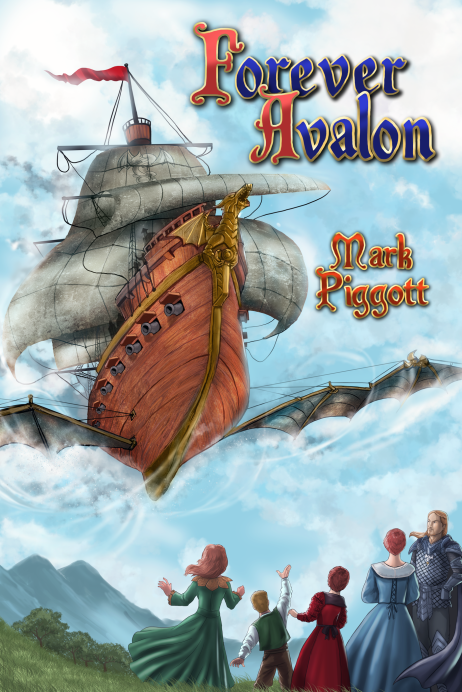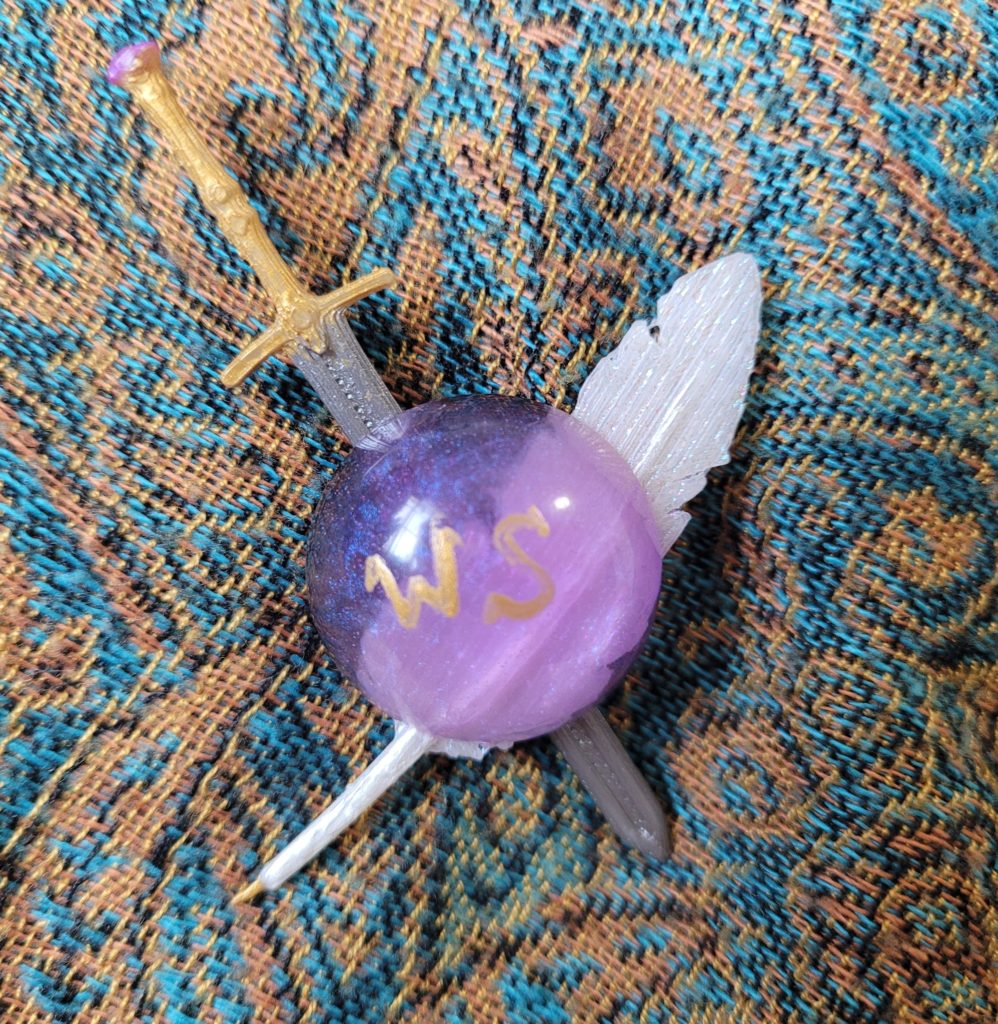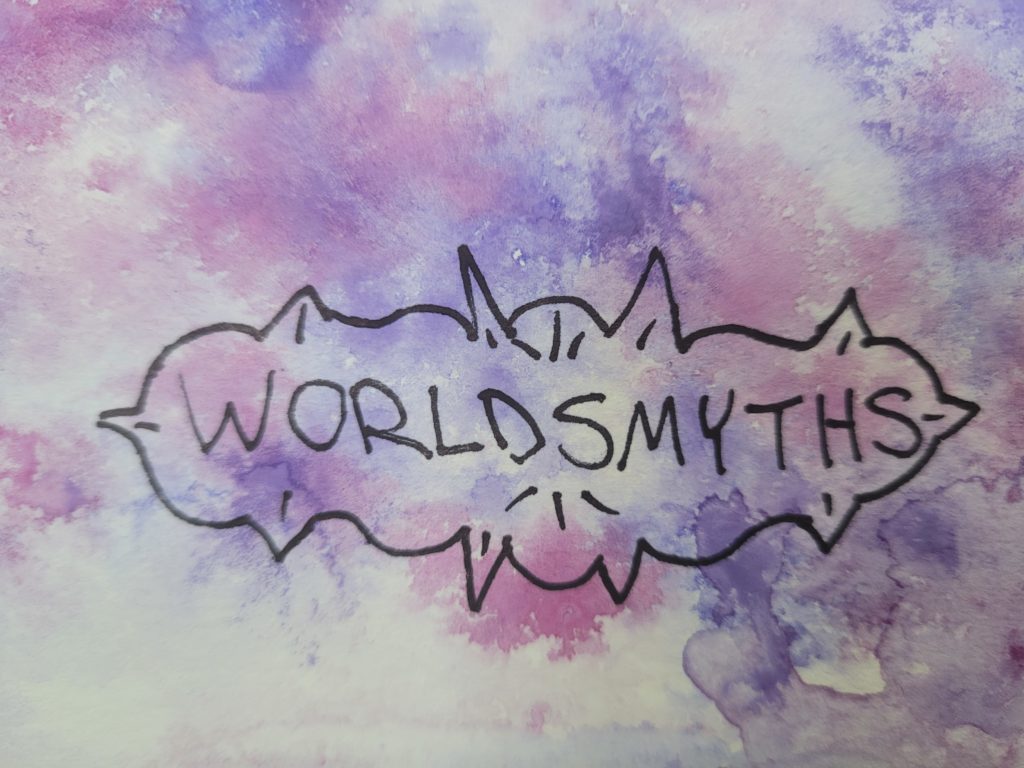We recently made a post on Instagram looking for a few authors who were willing to do an interview exchange of sorts, as a way for us to help get the word out about Worldsmyths and the anthology. Mark Piggott, author of the Forever Avalon series, was the first to volunteer! You can find his website here.

I sent Mark a set of twelve questions to fill out for us to put on the Worldsmyths website, and he sent me some questions to answer as well to put on his blog. Here are the questions I sent to Mark:
Have you always been interested in writing?
Growing up, I wanted to be a comic book artist (the next Jack Kirby/Stan Lee) so I created my own comic book characters, stories. But, my art wasn’t up to par so I switched to writing. I started out as a journalist for the U.S. Navy and, near the end of my military career, I started writing my fantasy stories. When I’m not writing my novels, I work as a writer-editor for the Department of Housing and Urban Development.
When did you first realize you wanted to be a writer?
I think I’ve always been a storyteller. In the Navy, I wrote stories about the people who served, the places we visited and the operations we participated in. When I was deployed, I used to play a lot of Dungeons and Dragons, especially in the 80s and 90s, in my off-duty free time. This was before email, internet, and gaming consoles. So, combining late-night D&D sessions with missing your family while deployed led to dreams about being with them in a fantasy world. I had these dreams all the time whenever I was deployed. On my last deployment on USS Enterprise (yes, I can proudly say that!) I started taking my dreams and writing it down, until I had my first novel, Forever Avalon. After that, I stopped having the dream. That’s when I knew I was a writer.
How long does it take you to write a book?
It varies from six months to more than a year. Writer’s block has worked on me in more ways than one. Add to that my full time job, writing/editing my own WIPs, as well as marketing, social media, setting up book signings, etc. It makes for a lot of long days and nights, and not in a good way. But, it’s what I love doing and, without writing, these stories would stay stuck in my head, spinning around like a 24/7 Broadway play.
What is your writing process like?
When I first started writing, I just wrote what I thought, no outline or research. It was just whatever was in my head. Now, I’ve evolved into first writing down character names, descriptions, places and background of the world I’m creating, and a complete outline. This helps me see where I’m at and so I know where I’m going. All the while, I’m doing constant research online using baby name generators, Google translate for languages (for magic spells and other languages), and a lot of historical research too. On top of that, I do a lot of reading of other authors in my genre to look for trends, myths and legends explored, etc.
Where do your book ideas come from?
I’ve always loved myths and legends. I even took a mythology class in high school. These are the original stories to which all of today’s fantasy genre is based on. D&D has been a big part of my stories, using my skills as a player and Dungeonmaster when it comes to character development, world building, etc. Beyond that, I get a lot of inspiration from anime. Japanese anime has some of the best writing as far as storylines, character development, and world building. Along with the beautiful artwork accompanying these series, I get inspired from watching them and using their influence in my own writing.
What is your favorite aspect of writing — creation characters, world building, plotting, editing, etc?
I think character creation is my favorite aspect of writing. I am so involved in the creation and life of them that I break down and cry when I write a scene where one of those characters die. I still cry when I reread them in my work. Also, the family in Forever Avalon are based on my own family members, my wife and children. I used their personalities when creating these characters, even their middle names for the characters first names. That makes them very personal to me. The hardest aspect is world building. When you have to create an entire world from the bottom up, one simple mistake could lead to a plot hole or other issue in your story.
How much has the idea of your first book changed between the first draft and the final, published draft?
Not a lot, really. I stuck with the story from the original concept. The biggest change was between book one and two. When I started writing the sequel to Forever Avalon, I actually started writing it as a prequel to show the protagonists 10 years spent on Avalon before his family’s arrival. But, the more I wrote, the more off putting it seemed going to a prequel instead of a sequel. So instead, I wrote a straight sequel with flashbacks using the prequel material I had already written. That ended up being my second book, The Dark Tides.
Your first series is about Avalon, which is a very well-known part of Arthurian legend. Have you always had an interest in Arthurian stories? What made you want to write one about Avalon?
Like any child, my first exposure to King Arthur was through the Disney movie, “The Sword in the Stone.” In my youth, I remember the movie “Excalibur” which took the Arthurian legend to full bore. That led me to the books and stories of the legend of King Arthur. To me, these are the first stories of magic, knights, heroism, love and courage. I think everything we, as fantasy authors, base our stories on, it all leads back to King Arthur, Camelot, Merlin and Excalibur. That’s why I based my story, not on D&D, but on the legend of Avalon. I wanted to take a “what happens next” approach. To me, the death of King Arthur meant the end of magic in our world, so where did it go? Forever Avalon explains that story.
What does your writing space look like?
I live and work in Washington, DC, so right now, my writing space is wherever I can find it in a one-bedroom high-rise apartment. It’s just me, my wife Georgiene, and our Westie, Sully. My children are all grown up and moved out on their own. I write at the dining room table, sitting up in bed, or on my recliner with my laptop on my lap or table. I don’t mind the noise as, working on an aircraft carrier for most of my adult life, you get used to it.
Do you plan your stories thoroughly before writing, or just dive right in?
I outline the idea of my stories, but as I said before, they come from my dreams. The stories play out in my head and I do my best to translate that into my computer. That was true for the Forever Avalon series, my new work The Last Magus, and a steampunk story I’m working on. Outlines help me plan but it lays out in my head. I used to express my stories through my D&D gameplay, but now I do it in my writing.
What is your number one piece of advice for a new writer?
Don’t give up. It is a time-consuming, grueling, nose-to-the-grindstone business, but the satisfaction of reading a review that someone liked your story is worth it. I may not achieve the status of a Stephen King or Terry Brooks, but those few people who enjoy my stories are all worth it. I love being a storyteller because we are the writers of life and love, of myths and legends. That makes all this worth it.
What advice would you give a more experienced writer?
Be a mentor to other writers. There is a vast community out there of aspiring writers who need advice and the experience can help guide others into the swamp that is the publishing industry. There are so many paths to follow, both good and bad, and I try to help others as much as I can. That’s why I write a blog to write about my experiences as a writer as well as promote my books and my geek hobbies.
Comments closed

